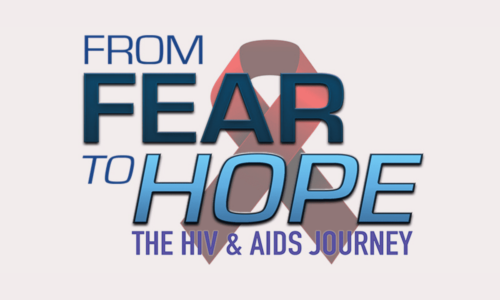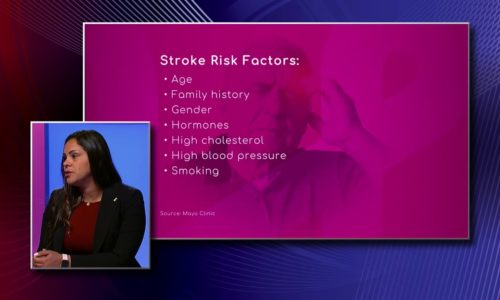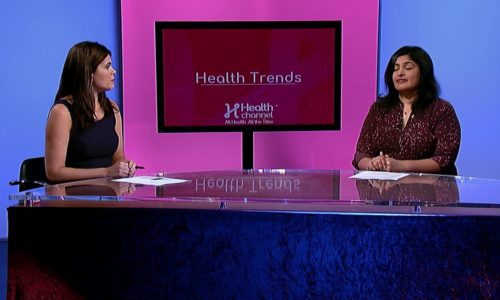Healthier Heart: Diet, Blood Pressure, Oral & Sleep Health | Doctor Q & A
Dr. Mohamed Osman, Interventional Cardiologist at Broward Health, clears the air on high blood pressure, diets, and he addresses the connection between oral health and heart health.
Transcript
Heart disease is the leading cause of death in the United States, causing about one in four deaths. In an episode of Doctor Q & A on the Health Channel, Dr. Mohammed Osman, who has spent 20 years practicing as an interventional cardiologist with Broward Health Physician Group, shares his expertise on the correlation between diet and blood pressure.
The first thing brought up in the interview was the Mediterranean diet. The Mediterranean diet, which is extremely popular, has ranked as the number one diet for heart health, diabetes, and weight loss for five years straight. The interviewer asks Dr. Osman: what foods make up the Mediterranean diet?
Dr. Osman replies that while there is no unified definition of what a Mediterranean diet is; however, it is understood as being made up of foods commonly consumed by countries that are a part of the Mediterranean basin. This usually includes vegetables, fruits, beans, nuts, olive oil, and lean meats. Though, Dr. Osman says, it is more important to individualize your diet to be achievable for you rather than follow a predetermined standard. There are countless diets out there and the amount of information out there can easily become overwhelming. There are so many factors that affect whether a diet is right for you, Dr. Osman explains that it is more important to individualize your diet, so it is sustainable rather than jump on any diet fad.
Foods that work for other people might not work for you. There are many factors that influence whether a diet is sustainable for an individual. For example, there is preference. “If somebody doesn’t like to eat avocado, I cannot force them to eat avocado,” says Dr. Osman. People have different cultures, religious practices, and economic standing which affect what kind of diets they are able to do. Adherence and consistency are the most important factors in making a diet successful. If someone cannot maintain a diet for whatever reason, even if it is good for them, it is not the diet for them. Even with the Mediterranean diet, Dr. Osman says that “it recommends that people eat a lot of nuts and seeds. If someone has an allergy for nuts or seeds, for example, that would be a very bad choice for them. If somebody has a condition like diverticulosis that would also be a bad choice for them.” Even mental health, conditions like anxiety, depression, and insomnia, can affect what is comfortable for you to be eating. “This idea of one size fits all, it’s just not going to work for everybody,” Dr. Osman says.
Even though dieting is hard to navigate, it is important that people do not give up on it. Dr. Osman says that every day he sees patients with mild to severe heart conditions and he is a firm believer that heart attacks can be prevented with a good diet and consistent exercise. “I think we need to spend some more time just thinking about what we are consuming every day and what we are putting in our bodies,” Dr. Osman warns.
The interviewer asks Dr. Osman what should be the first step for someone who wants to try to diet? Should they go to their doctor to figure out what diet they should have? Dr. Osman replies that while everyone’s situation is different, for someone who wants to start a diet, talking to their physician is a good place to start. Though, physicians are usually just a starting point and not the answer. “Being that physicians have limited time to see patients and have a lot of patients, I think they will do a good job initiating a discussion but that’s not the ideal situation,” Dr. Osman explains.
In Dr. Osman’s opinion, talking with a dietitian would be ideal. Dietitians have a lot of knowledge, experience, and can guide patients through different choices. Dr. Osman also encourages people to feel empowered about their decisions. People can use physicians and dieticians as a resource but at the end of the day only the individual can decide what is best for his/her situation.
The next question the interviewer asks the doctor is, why do so many people swear by intermittent fasting for weight loss and is it harmful? Dr. Osman says that he likes the idea for intermittent fasting. He explains that there are different ways of practicing intermittent fasting. For example, one can fast one day by eating 25 percent of one’s caloric intake, and the following day would be a feast day where the person eats 125 percent of their caloric intake. Or the individual can fast for a number of hours per day. Some people will eat for eight hours and then fast for 16 hours. Some people might eat as they normally would for five days and then fast for the last two days of the week. While there are different ways to do intermittent fasting, they all focus on controlling when you eat as opposed to controlling what you eat, which is what a diet does. This gives flexibility to patients who want to eat foods not accommodated by a diet. The idea is that when you eat regularly, you burn the calories that you consume. When you are fasting and there is no caloric intake, you start burning your own fat, so it does work for many patients seeking weight loss.
However, Dr. Osman reminds us that understanding your needs as an individual is still the most important aspect of choosing a diet. Intermittent fasting is not good for everybody. “Somebody like a diabetic patient, for example, fasting can be quite problematic for them because diabetic patients might be using oral diabetes medications or insulin injections. Without food for a long period of time, it can lead to their blood sugar dropping,” Dr. Osman warns. He also says that if you are consuming a lot of calories, such as if you are a pregnant or lactating, fasting may not be the best for you. GI conditions can also be a factor.
You can also adjust the fasting and eating times based on how you feel. Most patients in the first two to four weeks of fasting will not feel good. They can get headaches, feel moody or cranky, and have sleeping problems. After that though, Dr. Osman says that patients can begin to feel the benefits.
The interviewer asks the doctor, based on his experience as a cardiologist, what is the correlation between diet and heart health? Dr. Osman answers that diet influences heart health in a way that is incredibly obvious, especially when looking at someone’s arteries, which is something he does every day as a cardiologist. Dr. Osman says that just by looking at someone’s angiogram pictures he can tell whether a patient has a lot of a certain kind of food or even diabetes sometimes. “I can look at their skin and I can tell whether they are smokers or not.” What you consume can directly affect not only your health, but also how you look.
Dr. Osman also explains that food quantity and quality are just as important as what you are eating. For example, Dr. Osman says that he likes the idea of the Mediterranean diet in which you are eating a lot of vegetables, fruits, beans, nuts, lean meats, and olive oil, but this diet is only helpful if you are also keeping in mind the quality and quantity of those foods. “A sumo wrestler, they eat up to 7,000 calories a day, that’s a humongous number of calories being consumed on a daily basis. On the other hand, they exercise, on average, five hours a day, which is a lot of exercise,” Dr. Osman explains, “There are very interesting studies that look at their visceral fat and subcutaneous fat and so forth, but what happens when they retire, they stop exercising, and if they maintain the same feeding habits, bad things can start happening. Some studies suggest that sumo wrestlers live ten years less than an average Japanese citizen.” So, while sumo wrestlers exercise more than the average person and eat foods that promote muscle growth, the overconsumption of these foods ends up being harmful.
There is also the issue of quality. For example, while fried meat and grilled meat are both a source of protein, the quality of that protein is different because of how it is prepared. Overeating and eating poor quality foods contribute to obesity.
Obesity is a major issue in the United States, and it can affect the condition of your heart in many different and severe ways. Obesity leads to higher risk of coronary artery disease, which can lead to heart failure. It can also cause arrhythmia and even sudden death. It has been linked to raised incidences of heart attacks, strokes, high blood pressure, diabetes, and high cholesterol, which are all risk factors for heart disease.
The interviewer follows up and asks the doctor, what is the ideal blood pressure range and what causes high blood pressure? Dr. Osman replies that ideally, he likes to see blood pressure at less than 120, over 80. He explains that when you start having high blood pressure it comes in different stages. At stage one, the blood pressure starts ranging between 130 to 139 over 80 to 89. When it goes above 140 over 90 that is stage two.
The most common cause of high blood pressure is something called essential hypertension, which is basically high blood pressure that is not caused by any specific disease. Though, there are factors that can increase your chances of having high blood pressure like age, race, obesity, alcohol consumption, drug use, or the use of certain medications. The second most common cause of high blood pressure is called secondary hypertension, which is hypertension that is caused by another medical condition. It can be caused by a congenital vascular disease, or a specific kidney disease, or a tumor in the adrenal gland, and so forth. A doctor can help you determine what the specific cause is.
High blood pressure has been linked to heart disease in many studies, so Dr. Osman says that doctors like to treat it aggressively. However, Dr. Osman says that in his opinion, treatment only in the form of medication is a short-sighted approach. “Let me give you an example, a couple years ago I saw a lovely lady in the office, and she came to me for a second opinion. She was in her 50s and she was on four blood pressure medications and the blood pressure was still not well-controlled,” Dr. Osman explains, “She came to me to see what we can do to get her blood pressure under control.” After some investigation, there were no signs of this being secondary hypertension. “So, we started her on a good feeding program in addition to, I would say an aggressive style exercise program. Within one year she was down to only one blood pressure medication. I see this in my practice repeatedly. The way we eat, the way we mobilize our bodies can have a significant impact on our blood pressure. So rather than having a knee-jerk reaction and keep adding one medication after the other, I’d like to do another style of approach, a comprehensive approach,” Dr. Osman says. The doctor outlines that a comprehensive approach would see changes in food, exercise, and sleep in combination with medications and even mental health if needed.
The interviewer takes note on how Dr. Osman included sleep in his approach to high blood pressure and asks, what impact does sleep have on heart health? Dr. Osman replies that sleep is a topic that is frequently under-discussed in relation to heart health. Not only is the amount of sleep you get a night important, but also the quality of sleep. People with certain conditions, like sleep apnea, do not get quality sleep. So even if they sleep eight or nine hours per night, they still do not feel well.
People vary heavily on how many hours of sleep they need to feel healthy. Generally, Dr. Osman likes to see people sleeping for seven or more hours. People who suffer from chronic sleep deprivation can experience a wide range of problems, including high blood pressure, weight gain, memory issues, and higher risk of certain diseases. It impacts your overall quality of life and well-being. Dr. Osman says that even this is just scratching the surface of how large a role sleep plays in our health. Sleep disorders affect millions of Americans every year and yet they are rarely ever talked about in connection to more life-threatening problems.
While exercise is always a good way to support overall health, the interviewer asks Dr. Osman, specifically, how does exercise fit in to maintaining a healthy heart? Dr. Osman replies that alongside diet, the importance of staying active cannot be overstated. It is essential not only for keeping your heart healthy, but also for improving your overall quality of life. Dr. Osman explains how tangibly felt these two aspects of health are, “I like to use the example of epidemiological studies that looked at the Native American community. Many years ago, it was almost unheard of to hear that they have heart disease. Fast forward several decades to our present day and the incidence of heart disease, diabetes, and obesity is much higher and many researchers apply that with the change of the way people eat and the way people move their bodies.”
Dr. Osman says that ideally, we should be moving our body as much as we can on an everyday basis. The general recommendation he gives is 150 minutes a week of moderate exercise or 75 minutes a week of high intensity exercise. If possible, you can even do 300 minutes per week, or 5 hours, of combined high and moderate intensity exercise. “It’s just extremely important in our lifestyle nowadays. We sit most of the time at a desk in our job and then usually, we go home at the end of the day exhausted, and we want to eat something. Maybe you watch something on TV and then go to sleep. That’s not a healthy way to live at all,” Dr. Osman explains. If you do not incorporate some sort of activity into your life, you can run the risk of becoming overweight or acquiring diabetes which then produce their own slew of problems such as high blood pressure, heart disease, strokes, and so on.
The interviewer brings up that oral health is frequently linked to overall health; she asks the doctor if there is a connection between gum disease and heart disease. Dr. Osman replies that yes there is, and it is a very strong and obvious connection. “Cardiologists and dentists are kind of friends because usually our dentist friends send us patients to clear them before they do oral surgery. You see that almost daily,” Dr. Osman reveals. He explains that there are bacteria in our mouth and if you have poor oral hygiene, that bacteria can seep into the bloodstream and cause infection in the heart. It can even be a very serious infection called endocarditis. If the infection does not respond to antibiotics, sometimes those patients end up having to go through cardiac surgery and valve replacement. Fortunately, it is not that common, but it can happen.
There is also a strong relationship between plaque disease in the mouth and developing plaque disease in the heart. There are different explanations as to why this might be, but it is certainly not as direct as something like endocarditis.
Dr. Osman says that the relationship between oral health and heart health is so common that he had just spoken to a patient about the same thing right before the interview. “Just half an hour ago I saw a lovely patient that needs valve surgery. He asked me ‘when can we do it?’ I told him you go and visit with your dentist and once your dentist finishes with all the work he needs, then we’ll do the cardiac surgery, but not before that. The worst thing we can do is implant a cardiac device in the heart and then get that device infected because of poor hygiene,” Dr. Osman recounts. So yes, he finishes, there is a very strong connection between both.
Watch the full segment of Dr. Mohammed Osman answering questions about heart health, here: https://youtu.be/qSj6tQgE-UE
Understanding Blood Pressure
Intermittent Fasting: What are the benefits?
How Your Sleep Affects Your Heart
What’s the Connection Between Oral Health & Heart Health?
Mediterranean Diet for Heart Health












